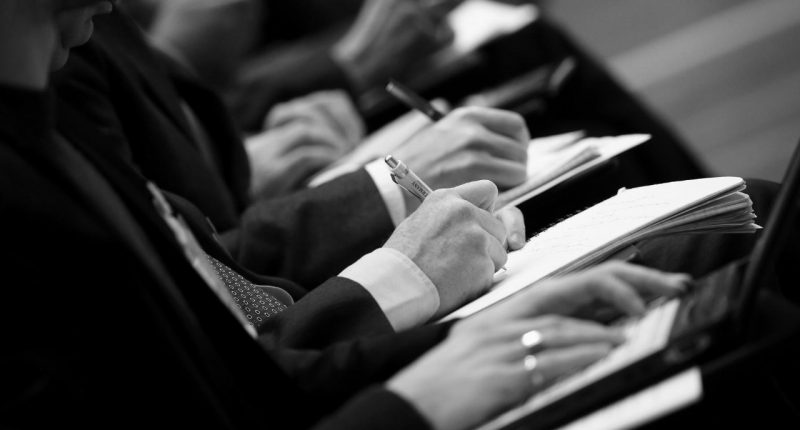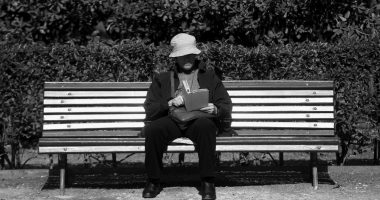There is a crisis in mainstream political reporting and it is damaging our democracy. The problem has been building for a long time, since at least the late nineties when news was first digitised at scale, but it has now come to a head.
Of course, the problems go deeper than journalism itself and extend to social and political changes that have taken place in the same period. In short, there has been a growing crisis of governance in which people have lost faith in the ability of democracy to address their needs and a tendency, therefore, to seek more extreme political formations.
Changes in the international order since the attacks of 9/11; technological changes that have transformed the nature of work; and the rise of a neoliberal economic order that has increased inequality and cut the social bonds that hold societies together have all played their part.
The key point to make is that the media are not neutral players in these matters. Unless they have a strong commitment to certain values, the combination of traditional journalistic practices with commercial incentives brought on by digitisation will work to distort the final news product, and that is exactly what we are seeing happen.
For example, try as they might to be objective, journalists change the nature of what they report simply by doing their job. In the old era of media scarcity, where the range of outlets for news was limited and controlled, they could assume a bird’s eye view of matters and report in a neutral manner (though it is fair to say that the level of neutrality was exaggerated and the inevitable biases of the process were too often left unexamined).
In the contemporary era, where media scarcity has been replaced with abundance, where the audience itself is part of the way in which news is interpreted and distributed (via social media), the veil of neutrality has been torn to shreds and its contradictions — its sheer implausibility — has been exposed for all to see.
This combines with the fact that digitisation has also changed the media’s business model, dispersing its audience, making it hard for them to corral enough eyeballs to sell to advertisers. The logic has become to “own” the entirety of a niche audience and target ads at them, rather than to try and muster a mass audience and offer that to advertisers.
The Fox News model of hyperpartisanship is ground zero for this approach. Their targeting of the right-wing political audience in the United States has been commercially successful and democratically toxic. The strategy has created an endless feedback loop, amplifying changes on that side of politics, so as the right wing has become more extreme and opened itself up to everything from Trumpian authoritarianism to anti-science conspiracy theories, Fox has helped legitimise and exaggerate the influence of those changes.
This model doesn’t translate seamlessly to Australia, but not for want of trying. The Murdoch tabloids in our capital cities, political commentary on Sky News, and even the national broadsheet, The Australian, have all doubled down on a more partisan way of presenting political news in the hope of “owning” that niche.
Journalists and editors at other outlets may try to be more “balanced” but given the size and influence of News Corp’s product in the Australian media market, their approach pervades. Many in the news business have convinced themselves that this right-wing niche is somehow the “real” Australia, and we have the ridiculous situation of nearly all mainstream media fighting over this segment, dismissing the rest of the audience as woke, inner-city latte sippers and other derogatory categorisations. The sale of Fairfax to Nine entertainment and the installation of a former Liberal Party deputy leader as company Chair, along with the growing weakness of the ABC, under relentless attack from inside and outside the parliament, has added up to a media landscape skewed hopelessly to the right.
Despite this, Australia has not succumbed to extremism in the same way the US has, and for that we can thank three thin reeds of institutional sanity that keep our politics dangling above, rather than dropping into, the mire: compulsory voting, preferential voting, and an independent Electoral Commission. Their existence has meant that it is harder for politicians and other political players, including the media, to manipulate outcomes — a point captured in comments by former Liberal prime minister, Malcolm Turnbull, responding to the recent Victorian election:
“The angertainment media can monetise narrow audiences with divisive hate filled bile — but it is too narrow for electoral success.”
Still, the relative inability of the media to influence political outcomes does not excuse their behaviour. Freedom of expression was never meant to be a suicide note, and the role of journalism is to discriminate in favour of democratic outcomes, of truth and fairness, not to provide a platform for any stupid or dangerous thing some group or individual happens to believe.
What, then, do we do about all this? How do we fix it? Or more to the point, what is journalism actually, really meant to be?
On a philosophical level, the answer is straightforward. Journalism is for audiences. It’s for democracy. Journalism that undermines that mission in any way, by either straight bias or the amplification of anti-democratic tendencies or misinformation, is failing in its civic and professional duty.
On a practical level, there are changes that could be made that would have an immediate effect on the quality of Australian political reporting. I don’t pretend any of them would be easy, or sufficient, but they need to happen, and the key to them is that the government needs to understand media as a social good to be approached in the same way as healthcare or education.
First, the government needs to fund a new Press Council, a version that includes representatives of audiences, various media experts, and perhaps former journalists with a record of integrity. This organisation needs to have the time and resources to investigate complaints and the ability to produce reports and impose meaningful sanctions, including retractions, apologies and corrections that are given the same visibility as the original infraction.
The government also needs to redesign the so-called news media bargaining code which funnels money from Facebook and Google to media outlets. At the moment most of this money goes to legacy organisations like Nine and News Corp, and it is thus throwing good money after bad. The rules of distribution need to change to help support the tier of new players that have come into existence in the last decade or so — smaller, independent outlets and individuals not in thrall to the same sources of power as the legacy media organisations.
The third matter involves the ABC, which remains the centre of any hope we might have to reinvent Australian political reporting as a pillar of democracy. The national broadcaster needs better funding, including protection against future governments removing that funding.
More than anything, though, the ABC needs to rediscover its own civic purpose and stop trying to appease self-interested critics in organisations from the IPA to the Liberal Party to News Corp itself. They need to better nurture their own talent and news analysis skills and put a moratorium on allowing journalists from News Corp to appear on their programs. No single thing has more undermined the integrity and practice of the ABC’s journalism than the way in which they have allowed News Corp values to slip into and dominate their own coverage.
My final suggestion is that it be mandatory for all major news outlets to have a public editor, someone whose job it is champion the role of the audience in the process of reporting and to address their concerns.
Until media outlets properly engage with their audiences as citizens — rather than reducing them to commercial niches — we are never going to get the political reporting we need and deserve.
Tim Dunlop is Melbourne-based writer. His new book, Voices of Us, about the rise of the “teal” independents, will be released in December.





